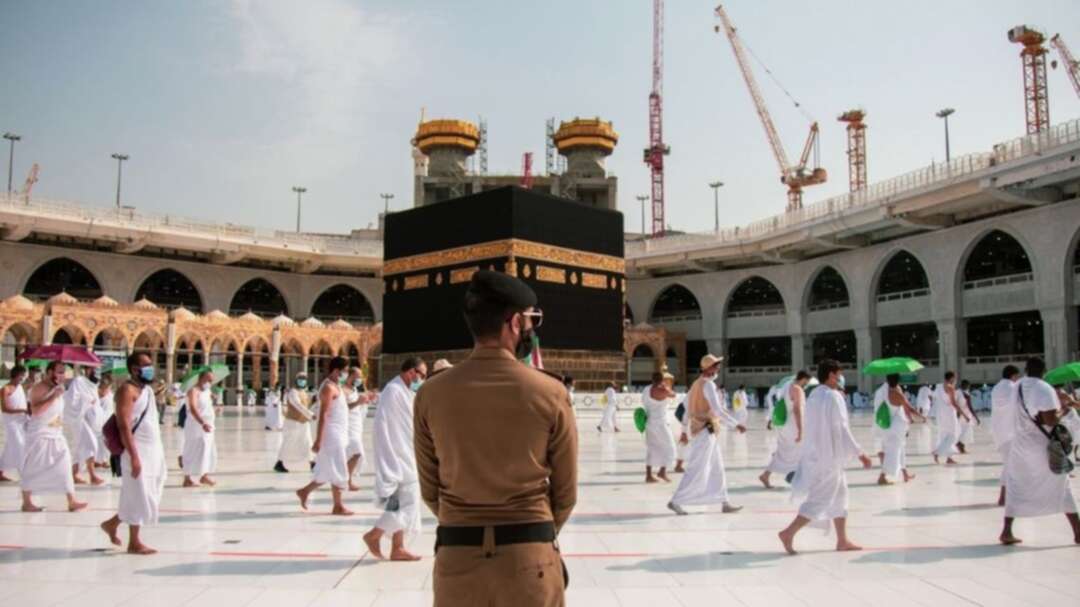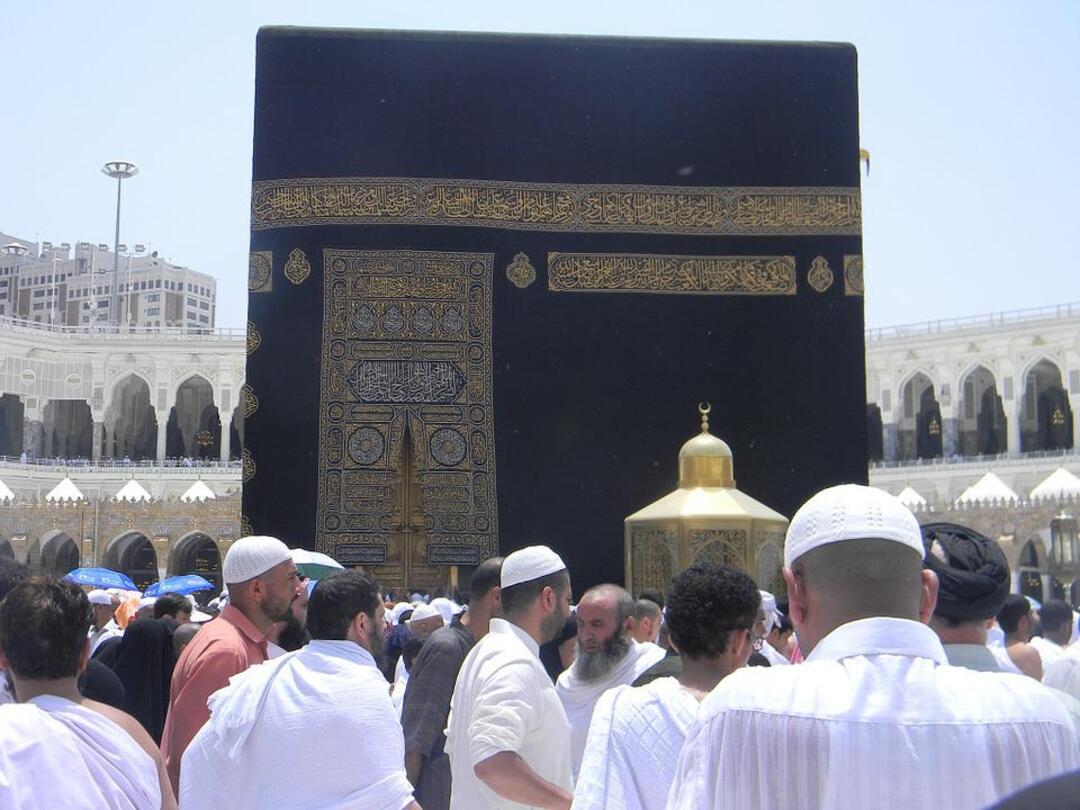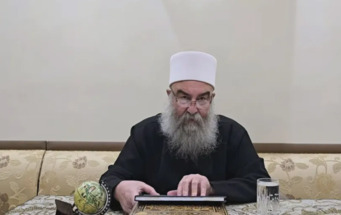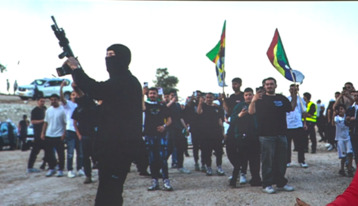-
Pilgrims in Saudi Arabia are now able to touch ancient Black Stone

A barrier around the Kaaba that was set up at the start of the Covid-19 pandemic has now finally been removed, President of the General Presidency for the Affairs of the Two Holy Mosques Dr. Abdulrahman bin Abdulaziz al-Sudais announced in a statement.
For Umrah season, pilgrims in the Great Mosque of Mecca can once again touch and kiss one of Islam's most revered relics, the Black Stone set in the sacred Kaaba building.
The Umrah season started on July 30 and comes at a time when Saudi Arabia eased measures previously taken to face the coronavirus pandemic.
The Umrah pilgrimage can be undertaken at any time of the year and attracts millions from around the world. Pilgrims may also visit the holy city of Medina, according to the BBC.
Al-Sudais said that the decision to remove the protective barriers reflects on the leadership’s interest in facilitating the holy journey for visitors and to provide the safest spiritual environment for them, The Alarabiya English reported.

“The presidency is working with all sectors operating at the Grand Mosque to welcome pilgrims and to provide them with all services based on the leadership's aspirations,” al-Sudais said in the statement.
Saudi Arabia dropped most of its stringent Covid-19 restrictions earlier this year, which meant that the Hajj pilgrimage last month was nearly back to normal for the first time since the pandemic started.
Saudi Arabia announces successful and safe Hajj season
The Black stone is a rock set into the eastern corner of the Kaaba, the ancient building in the center of the Grand Mosque in Mecca, Saudi Arabia. According to Muslim tradition, it dates back to the time of Adam and Eve.
It was already held as sacred before the rise of Islam, and is said to have originally been white, but turned black through receiving the sins of those who touched it, the BBC noted.
Levantnews-BBC-alarabiyaenglish
You May Also Like
Popular Posts
Caricature
BENEFIT Sponsors BuildHer...
- April 23, 2025
BENEFIT, the Kingdom’s innovator and leading company in Fintech and electronic financial transactions service, has sponsored the BuildHer CityHack 2025 Hackathon, a two-day event spearheaded by the College of Engineering and Technology at the Royal University for Women (RUW).
Aimed at secondary school students, the event brought together a distinguished group of academic professionals and technology experts to mentor and inspire young participants.
More than 100 high school students from across the Kingdom of Bahrain took part in the hackathon, which featured an intensive programme of training workshops and hands-on sessions. These activities were tailored to enhance participants’ critical thinking, collaborative problem-solving, and team-building capabilities, while also encouraging the development of practical and sustainable solutions to contemporary challenges using modern technological tools.
BENEFIT’s Chief Executive Mr. Abdulwahed AlJanahi, commented: “Our support for this educational hackathon reflects our long-term strategic vision to nurture the talents of emerging national youth and empower the next generation of accomplished female leaders in technology. By fostering creativity and innovation, we aim to contribute meaningfully to Bahrain’s comprehensive development goals and align with the aspirations outlined in the Kingdom’s Vision 2030—an ambition in which BENEFIT plays a central role.”
Professor Riyadh Yousif Hamzah, President of the Royal University for Women, commented: “This initiative reflects our commitment to advancing women in STEM fields. We're cultivating a generation of creative, solution-driven female leaders who will drive national development. Our partnership with BENEFIT exemplifies the powerful synergy between academia and private sector in supporting educational innovation.”
Hanan Abdulla Hasan, Senior Manager, PR & Communication at BENEFIT, said: “We are honoured to collaborate with RUW in supporting this remarkable technology-focused event. It highlights our commitment to social responsibility, and our ongoing efforts to enhance the digital and innovation capabilities of young Bahraini women and foster their ability to harness technological tools in the service of a smarter, more sustainable future.”
For his part, Dr. Humam ElAgha, Acting Dean of the College of Engineering and Technology at the University, said: “BuildHer CityHack 2025 embodies our hands-on approach to education. By tackling real-world problems through creative thinking and sustainable solutions, we're preparing women to thrive in the knowledge economy – a cornerstone of the University's vision.”
opinion
Report
ads
Newsletter
Subscribe to our mailing list to get the new updates!






















